Unrepentant Times Square bomber pleads guilty '100 times'
Pakistani-born American Faisal Shahzad pleaded guilty on Monday to the Times Square car bomb bid "100 times".
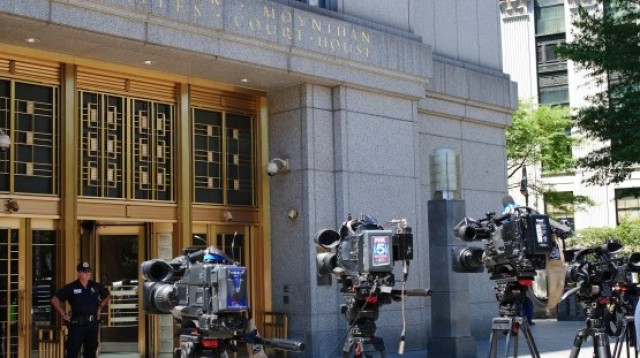
Unrepentant Times Square bomber pleads guilty '100 times'
Reading out a combative statement in court, Shahzad portrayed himself as a Muslim warrior and showed no remorse as he pleaded guilty to all 10 charges, including attempted use of a weapon of mass destruction and terrorism.
"I want to plead guilty 100 times because unless the US pulls out of Afghanistan and Iraq, until they stop drone strikes in Somalia, Pakistan, and Yemen, and stop attacking Muslim lands, we will attack the US and be out to get them," he said, speaking in perfect English.
Asked by judge Miriam Cedarbaum why he tried to kill innocent Americans, 30-year-old Shahzad, who wore a white Muslim skullcap during the 90-minute proceedings, was unrepentant. "Listen, you are attacking children with your drones in Afghanistan," he said. "I would not consider what I did was a crime. I'm aware it's a violation of the United States laws, but I don't care for the laws of the United States."
Shahzad was pulled off a flight to Dubai on May 3, two days after he parked a car containing a rudimentary explosive device in New York's Broadway entertainment district.
The attempted bombing on a busy Saturday night was foiled when street vendors spotted smoke emanating from the back of a Nissan Pathfinder and alerted the authorities. A 53-hour manhunt ensued, ending with Shahzad's arrest as his plane was about to taxi for take-off from John F. Kennedy Airport to Dubai. US attorney Preet Bharara said there was no plea agreement between Shahzad and the US government.
Shahzad was assured and determined as he spoke in detail in court, describing eerily how he plotted the attack to cause maximum casualties and waited for a bomb to go off that never did. "I walked to Grand Central station. I was waiting to hear a sound, but I did not hear any sound so I went home," he said. "I didn't choose a specific building, but I chose the center of Times Square, and obviously, the time, 6:30 pm, and obviously, a Saturday, May 1st."
Shahzad told the judge he had undergone bomb-making training during a 40-day stay with the Pakistani Taliban in Pakistan, between December 9 and January 25. The five days of bomb-making training involved "the whole thing -- how to make a bomb, how to detonate it," he said.
On returning to the United States, Shahzad said he planned the bombing alone and acted all by himself, telling the judge: "Nobody helped me."
A 10-count indictment handed down Thursday alleged that Shahzad received two payments totaling 12,000 dollars from an unidentified co-conspirator in Pakistan. He used the money to buy a semi-automatic nine millimeter Kel-Tec rifle in March and the Nissan Pathfinder, for which he paid 1,300 dollars cash in a supermarket parking lot on April 24, it alleged.
He then bought components for "improvised explosive and incendiary devices," loaded them in the Pathfinder, and on May 1 drove the sport utility vehicle to Times Square, the complaint said.
Shahzad pleaded guilty to attempted use of a weapon of mass destruction, attempted act of terrorism transcending national boundaries, attempted use of a destructive device in a terrorist conspiracy and a string of other conspiracy, explosives and weapons related charges.
Due to his guilty plea, there will be no trial, and sentencing is expected in October. Shahzad has cooperated fully in custody, waiving Miranda rights that protect detainees from incriminating themselves, US justice officials say.
"Faisal Shahzad plotted and launched an attack that could have led to serious loss of life, and today the American criminal justice system ensured that he will pay the price for his actions," Attorney General Eric Holder said, reacting to the guilty plea. The son of a respected Pakistani air force officer, Shahzad attended an elite Pakistan Air Force college before coming to the United States to study at the age of 18 and eventually becoming a naturalised American citizen.
The botched car bombing left residents, visitors and authorities in Times Square jittery, with several "suspicious packages" that later turned out to be harmless. US aviation officials also changed security regulations, shortening the amount of time for airlines to check updated "no-fly" lists, after Shahzad was able to board his flight despite having been added to the list.


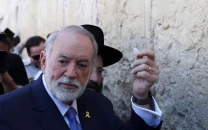
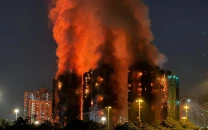
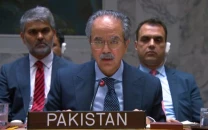
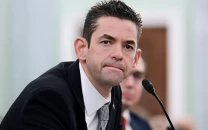
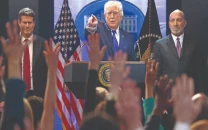











COMMENTS
Comments are moderated and generally will be posted if they are on-topic and not abusive.
For more information, please see our Comments FAQ